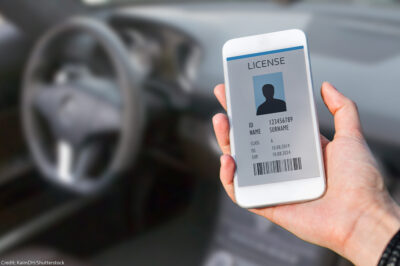
Everywhere I go, I hear some variation of the claim that “young people today just don’t care about privacy.” This is something that people widely seem to believe is “just true.” The latest claim to this effect comes in the form of a new poll, the release of which was trumpeted with unfortunate headlines like “Millennials don’t worry about online privacy.”
In fact, the poll, which was conducted by the University of Southern California’s corporate-partnered Center for the Digital Future, showed no such thing. Although there were some differences between younger and older respondents, they were not nearly dramatic enough to warrant such headlines. I’ve been unable to find the poll itself and its methodology online, but the Annenberg Center press release summarizing those findings reports that:
- Both Millennials (ages 18-34) and over-35 people believe in large numbers (70% and 77%, respectively, with a 3.1% margin of error) that “no one should ever be allowed to have access to my personal data or web behavior.”
- Only 25% of Millennials agreed with the statement, “I’m ok with trading some of my personal information in exchange for more relevant advertising.” Among the over-35 set, it was 19%.
- The most dramatic difference found was that 56% of Millennials would share their location with companies in exchange for coupons or deals, compared to 42% of the over-35 population. That’s still nearly half who did not agree that they would do so.
- The poll found that Millennials are more frequent users of social networking sites, 48% vs. 20% of the over-35 population. That’s (a) hardly a surprise, and (b) hardly prima facie evidence of a lack of concern about privacy.
By framing its findings in such a way as to reinforce the broadly held prejudice that young people “don’t care about privacy,” Annenberg does a disservice.
Other polls, such as one released in 2010 by researchers at UC Berkeley School of Law, have found a high level of concern about privacy among adults aged 18-24, while similarly finding some marginal differences with older Americans. Insofar as there are differences, there are good explanations that don’t rely on the claim that there’s some massive generational shift in attitudes toward privacy going on:
- As journalist Wendy Grossman has suggested, “teens certainly do value their privacy; it's just that their threat model is their parents.” They may not be as worried about the government or companies, probably because many do not have the historical knowledge or perspective to worry about those “threats,” but they do live under constant surveillance by their increasingly helicopter-hovering parents. Microsoft’s danah boyd has described how her research uncovered various strategies used by teens to evade this surveillance.
- Young people are typically not yet ensconced within hierarchical organizations or other structures of power, and they have not learned how various privacy violations can reverberate across time and within professional communities. In fact, all of us are transitioning to a new understanding of how the internet is affecting these things, but young people are less likely to have learned the need to be concerned about their online profile and reputation. As they age, most will wisen up. But that’s much different from a generational shift that will carry forward even as these people age.
- Teens often are engaged in a process of identity formation that involves not only exploring different concepts of self, but presenting such identities to others. That is something teens have always done—but today it’s done electronically. That may mean that identity experimentation (as with so many things) has bigger privacy consequences today than for past generations, but it doesn’t mean that teens don’t desire privacy overall.
- The use of social media is probably the biggest factor behind the myth that young people don’t care about privacy. It is true that young people use social media more. It’s also true that social media can have negative effects on one’s privacy. Much of this is due to the ways that social media confuse our privacy intuitions, for example by giving us the feeling we are communicating with a small set of people, even when we know intellectually that we are being followed by a much larger circle. But it does not follow that young people care less about privacy. Older people who use social media fall prey to the same privacy pitfalls.
- Within any generation there is always a bell curve distribution: some who care about personal privacy, and some who disclose things about themselves with wild abandon. The high profile that those in the latter category have achieved—largely due to the attention brought by the new technologies through which they post personal information—also explains the impression many have that young people don’t care about privacy. But the outliers do not define the whole group.
- In the same way, when it comes to privacy as a political issue beyond personal concerns, there is always, as with most political issues, a minority who care and are aware, and a larger group who are indifferent. While the young may be less politicized in general than older people, once again, that’s not the same as a generational shift.
There are no doubt many parties, such as advertising companies, that would like to cement the impression that a new generation is coming up that doesn’t care about silly old privacy concerns—and by implication, that those concerns are a purely culturally relative, fuddy-duddy relic of our pre-information-age past. It’s true that many privacy invasions are silent and invisible, and only a minority of people will know and care about them. But where the rubber hits the road and people are aware of their loss of control over how they are seen by others, people of all ages will always assert their need for privacy in the strongest way.



